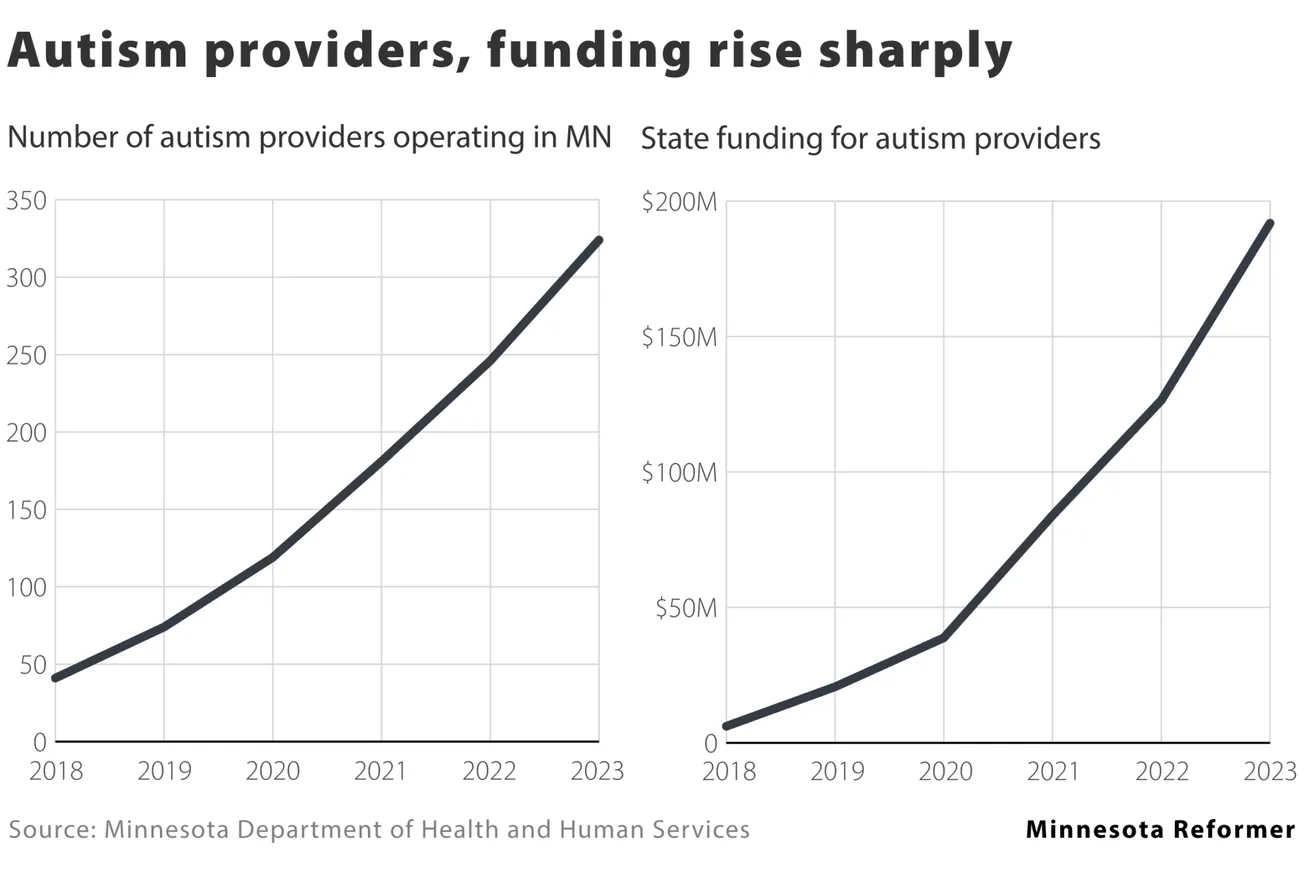
By Max Nesterak, Minnesota Reformer
Take a seat in the Break Room, our weekly round-up of labor news in Minnesota and beyond. This week: Employers rarely penalized for misclassifying workers; Minneapolis sends Uber and Lyft packing; Workers sue manure company for wage theft; Striking workers would get unemployment benefits under state bill; state legislatures have few working-class lawmakers; St. Paul educators ratify contract; Biden says U.S. Steel should stay in American hands; and Texas judge knocks down joint-employer rule.
Misclassification is rarely enforced
Businesses have strong economic incentives to misclassify workers as independent contractors rather than employees: They don’t have to pay a minimum wage, overtime premiums, payroll taxes or workers compensation insurance premiums.
State labor regulators are supposed to serve as a check against these incentives by penalizing bad actors, but they seldom do, according to a new report by the Office of the Legislative Auditor.
That report says Minnesota’s response to worker misclassification is both “uncoordinated and inadequate,” and that employers face only limited consequences when the state does identify it.
Misclassification isn’t just important for the worker who’s injured on the job and can’t access workers’ compensation or the worker who is cheated out of overtime pay or who is laid off and can’t get unemployment insurance. Misclassification also undermines fair competition because bad actors can take advantage of lower labor costs of independent contractors to undercut their competition.
And it robs state coffers of tax revenue and shorts the unemployment insurance fund, shifting more of the cost of the social safety net onto taxpayers. Misclassification and wage theft in just the construction industry costs the state upwards of $136 million a year in lost tax revenue, according to one estimate by the Midwest Economic Policy Institute.
It’s unclear exactly how common the practice is because none of the three agencies responsible for enforcing misclassification — the Department of Labor and Industry (DLI), the Department of Employment and Economic Development (DEED), and the Department of Revenue (DOR) — calculate how often it occurs.
The best approximation the auditors could come up with was based on data from DEED’s 2018 random audit of the unemployment insurance program. They found more than 1 in 5 employers misclassified at least one worker, but cautioned the data cannot be generalized across the entire economy. Other researchers have attempted to answer this question. For example, the Midwest Economic Policy Institute estimated in 2021 that nearly a quarter of construction workers in Minnesota — about 30,000 people — are misclassified or paid off the books.
The state auditors found the three agencies don’t share information about their misclassification findings, while only seeking to remedy the effect specific to that agency. For example, DEED only seeks to recoup lost contributions to the unemployment insurance fund and DOR only seeks back taxes. Just one agency — DLI — seeks restitution for workers who were misclassified.
The lack of coordination can be explained in part by the fact that different agencies use different rubrics to evaluate whether a worker is an employee or an independent contractor. Generally, the more control an employer has over a worker’s day-to-day activities, the more likely they are an employee. Even so, with differing standards, one agency might need to conduct a separate investigation if a case is referred to them. Data privacy laws also limit communication between agencies on active investigations.
In her response to the report, DLI Commissioner Nicole Blissenbach also pointed out that state investigators may be thwarted by uncooperative business owners. In one sprawling case of misclassification, a construction contractor only turned over documents and agreed to not discourage workers from cooperating after he was sued by Attorney General Keith Ellison, who has created a task force on misclassification.
State Democrats introduced a bill that anticipated the findings of the state audit. The bill (HF4444/SF4483) creates penalties up to $10,000 for violations, creates a partnership between agencies and the attorney general on misclassification, allows for greater data sharing across agencies and establishes one evaluation standard for misclassification in the construction industry.
The bill would also allow workers to sue businesses for misclassification, which would likely lead to quicker resolutions and restitution for workers than state enforcement.
Minneapolis Council sends Uber and Lyft packing
The Minneapolis City Council voted 10-3 to override a mayoral veto of minimum pay rates for drivers despite threats by the companies to cut service.
The council members say their ordinance simply guarantees drivers the city’s minimum wage of $15.57, though that’s factually dubious given a state analysis of more than 18 million trips taken in Minnesota in 2022. That report found significantly lower rates would allow drivers to earn a minimum wage even after paying for all their expenses and comprehensive benefits including retirement savings, paid sick leave and health insurance.
Following the vote, Uber said it will pull out of the Twin Cities metro area — where 95% of Minnesota trips occur — and Lyft renewed its threat to leave Minneapolis on May 1 when the minimum pay rates take effect.
Council members and drivers supportive of the ordinance say the two companies are bluffing and point to New York and Washington, where the companies still operate despite there being minimum pay rates. A critical difference in those states, however, is the rates were agreed to by the companies. When Seattle passed minimum rates in 2020 over the companies’ objections, Lyft did warn the law would “drive rideshare companies out of Seattle” but did not explicitly threaten to pull out.
If they do leave, the ordinances’ supporters say other companies are ready to enter the market. That’s what happened after the companies pulled out of Texas cities over fingerprinting requirements. The companies ultimately returned after the governor overrode the city laws.
Democrats have said they don’t support preempting cities from enacting their own pay standards, although Gov. Tim Walz told Axios the Minneapolis City Council is making him “rethink” his position. The companies, disability activists and drivers who believe Uber and Lyft will pull up stakes will likely apply pressure on Walz and Democrats to override the city ordinance.
Sen. Omar Fateh, DFL-Minneapolis, said he created a work group to discuss creating a state-run transportation network service that could replace Uber and Lyft. Fateh reintroduced a bill to set minimum pay rates that are also higher than what is estimated to be necessary to ensure drivers make minimum wage after their costs and benefits are paid for.
Workers sue manure company over wage theft
Three South African farm workers filed a lawsuit against a Minnesota manure management company, alleging they worked over 100 hours per week with no overtime pay and were not paid for the time they spent traveling for the job. The former Boehnke Waste Handling workers also say they lived in windowless rooms inside a machine shop, which was filled with the smell of manure, exhaust and other chemicals, Madison McVan reported.
The workers also describe enduring abuse from the company’s owner, Chad Boehnke. According to the lawsuit, after one worker complained about the lack of pay for travel time, Boehnke fired and yelled at the worker. The worker felt so unsafe that he called local law enforcement, according to the complaint.
Striking workers could get unemployment
Minnesota Democrats introduced a bill (SF3588/HF3446) that would entitle striking workers to unemployment benefits as if they had been laid off. Only workers locked out by employers or striking over safety issues are currently eligible for unemployment benefits under state law.
Unions and their allies in the Legislature argue the bill levels the playing field between union workers and employers. Employers wouldn’t be able to wait out workers until they start “losing their houses” — as one Hollywood executive reportedly summarized their strategy during the actors’ strike. Currently only New York and New Jersey allow striking workers to collect unemployment, but many other blue states are considering similar legislation. The progressive think tank, North Star Policy Action, estimated the change would barely increase unemployment costs and comprise just .2% of all claims.
Legislature has few working-class members
State Rep. Kaela Berg, DFL-Burnsville, is one of few working-class state lawmakers in the country. Photo by Michelle Griffith/Minnesota Reformer.
Just 116 of the nearly 7,400 state legislators in the United States come from working-class backgrounds, according to a recent study. Minnesota Rep. Kaela Berg, DFL-Burnsville, is one of them. A single mom and union flight attendant, Berg told Stateline she at first felt out of place in the Capitol. When she won election, she was living in a friend’s basement.
“I had the worst case of impostor syndrome,” Berg said. “I’m thinking, ‘Who do I think I am? I’m a working flight attendant. I don’t have a college degree. Why did I let somebody talk me into this?’”
Berg has been deeply involved in labor issues since she was elected in 2020. She is one of the lead authors on the aforementioned bill to give striking workers unemployment benefits.
The study’s authors argue legislatures are better able to address the economic hardships Americans face when their representatives have had similar experiences.
“State legislatures make consequential decisions, and if you have an entire economic class of people that are not in the room when policy decisions are being made, that’s going to tilt the kind of problems politicians pay attention to,” said Duke University political scientist Nicholas Carnes.
St. Paul teachers ratify a deal
The union that represents about 3,700 St. Paul public school teachers and hourly workers announced on Thursday its members had ratified a new contract. The economic gains are about half of what the union wanted. Licensed staff will receive $3,500 raises in the first year — retroactive to 2023 — and 4% in the second year. The St. Paul Federation of Educators had been asking for $7,500 raises in the first year and 7.5% the following year.
The agreement also maintains current class sizes and includes increased health insurance contributions and more support for educators working with special needs students, according to the union.
Biden says U.S. Steel should remain American owned
President Biden said U.S. Steel should remain in American hands in his sharpest criticism to date of the deal by Nippon, a Japanese company, to acquire the iconic U.S. company. Previously, the White House called for “serious scrutiny” of the deal while former President Trump has promised to block the deal if reelected.
In the past two years, the United Steelworks union and Cleveland-Cliffs, which has tried to buy U.S. Steel, have formed an unusually tight bond for a labor union and steel company. Both hope to scuttle Nippon’s takeover of U.S. Steel, which employs more than 1,800 Minnesotans.
Federal judge knocks down joint employer rule
A federal judge in Texas blocked a new rule from the National Labor Relations Board that makes large franchises like McDonalds and Ace Hardware jointly responsible for labor conditions along with their franchisees. The rule would make it easier for workers at big franchised companies to form unions, but faced stiff resistance from the business lobby, which argued the rule made employers liable for workplaces they didn’t control, the Associated Press reported.
“The District Court’s decision to vacate the Board’s rule is a disappointing setback, but is not the last word on our efforts to return our joint-employer standard to the common law principles that have been endorsed by other courts,” said Lauren McFerran, the NLRB’s chairman, in a statement.
Minnesota Reformer is part of States Newsroom, a nonprofit news network supported by grants and a coalition of donors as a 501c(3) public charity. Minnesota Reformer maintains editorial independence. Contact Editor J. Patrick Coolican for questions: info@minnesotareformer.com. Follow Minnesota Reformer on Facebook and Twitter.






